The government has confirmed it will introduce new restrictions on nighttime activities and the movement of people to halt the spread of Covid-19 during the summer vacation season, though on Friday officials stopped short of branding it a curfew.
Details of the new measures have not yet been confirmed, but officials said that the restrictions will depend on each individual province and region.
It is anticipated that in most parts of the country, citizens will be asked to remain in their homes between the hours of 11pm and 5am, with only a firm limit on traffic and the movement of vehicles in that window.
“The measures are being drafted at this moment and will be published tomorrow,” Cabinet Chief Santiago Cafiero said at a press conference in Buenos Aires, flanked by Health Access Secretary Carla Vizzotti and Tourism and Sports Minister Matias Lammens.
“There was agreement on the part of all the governors on the need to restrict circulation at night,” he added, declining to provide specific details.
Government sources said a decree confirming the restrictions would be published in the Official Gazette late Friday or Saturday morning. At press time, it had not yet appeared.
The introduction of new restrictions has been the hot topic all week, after images of packed beaches on the coast of Buenos Aires Province and reports of police raids on clandestine illegal parties were published in local media outlets.
Many officials expressed concern at the crowded scenes this week, observing that many holiday goers were ignoring social distancing rules and not using face masks. Experts say they believe gatherings of young people are one of the main causes for the uptick in infections.
"The number of infections began to increase from nighttime activities, which was when rules are relaxed the most and there were fewer controls or fewer protocols," said Cafiero.
"The world and Argentina are in a key moment where immunisation has begun but we still need to take care. The pandemic has not been beaten," he added.
Opposition to move
Details of the move have been under discussion all week in a series of videoconference meetings, with a number of officials breaking ground to call for the introduction of such measures.
Buenos Aires Province Deputy Health Minister Nicolás Kreplak said Wednesday that nighttime curfews had "worked quite well in many countries" and argued such a move could prevent another period of "total confinement."
However, talk of strict restrictions earlier in the week had, by Friday, given way to talk of a “light curfew,” after a number of regional leaders expressed opposition to a sweeping nocturnal shutdown.
Authorities in the provinces of Córdoba and Mendoza and the Buenos Aires City government opposed setting limits on freedom of movement. Others, such as Chaco, La Pampa, Formosa and Santiago del Estero sought tighter restrictions, given those regions have already introduced some form of evening curfew.
Some leaders also asked President Alberto Fernández to introduce a requirement that all citizens entering a province from another must take a Covid-19 PCR test beforehand.
Briefing journalists Thursday, officials rejected the use of the word "curfew" and said the measures were not an attempt to stop the economy, frustrate holiday goers or cut tourist activity.
Initial reports suggest a ban on driving and the movement of people between 11pm and 5am will be introduced, though provinces will have the autonomy to amend rules according to their economic needs.
In effect, that means varying degrees of restriction – such as the closure of eateries and bars, a reduction in public transport and restrictions on movement – will be applied throughout the country.
Those caught circulating within the restricted hours will be detained and reported to the justice system. Police are expected to be given the authority to impose fines and seize vehicles. It is unclear if exceptions to the measure – such as the circulation of essential workers – will be announced.
Opposition lawmakers expressed concern over the move, saying it painted all young people with the same brush.
"Once again, the Government chooses to restrict individual freedoms as a single response to the coronavirus health crisis," read a statement from the Juntos por el Cambio coalition.
"The most serious thing is the risk that a ban of this type and the stigmatisation of the behavior of young people could lead to the multiplication of cases of institutional violence,” it read.
Numbers surging
The nighttime restrictions are a bid to stop a rise in coronavirus infections across the country, with numbers surging during the summer vacation season.
In just the first seven days of January, the country registered more than 87,800 new cases of Covid-19, while on Thursday, the Health Ministry confirmed that more than 13,000 new cases had been recorded over the preceding 24 hours for a third consecutive day.
In Buenos Aires Province, home to 40 percent of Argentina's population and a number of beach resorts, daily new cases have risen from just under 2,000 on December 27 to more than 5,300 on Thursday. In that same period, new cases more than doubled in the capital.
The country has recorded more than 1.6 million cases since the outbreak of the pandemic, with at least 44,000 fatalities. The Health Ministry says intensive care bed occupation is at 54.7 percent nationally but 59.6 percent in the Greater Buenos Aires area.
Argentina began a mass vaccination campaign on December 29 with 300,000 doses of Russia’s Sputnik V vaccine while it has also approved the shots developed by Pfizer-BioNTech and AstraZeneca/Oxford.
– TIMES/AFP/NA





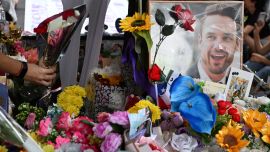

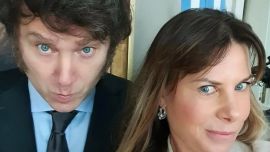
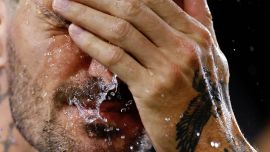

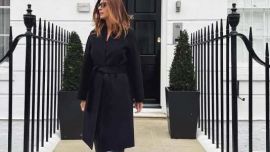





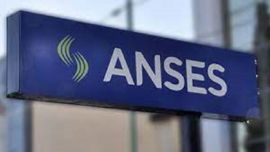


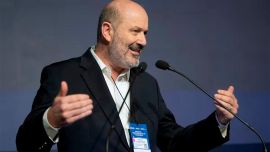
Comments